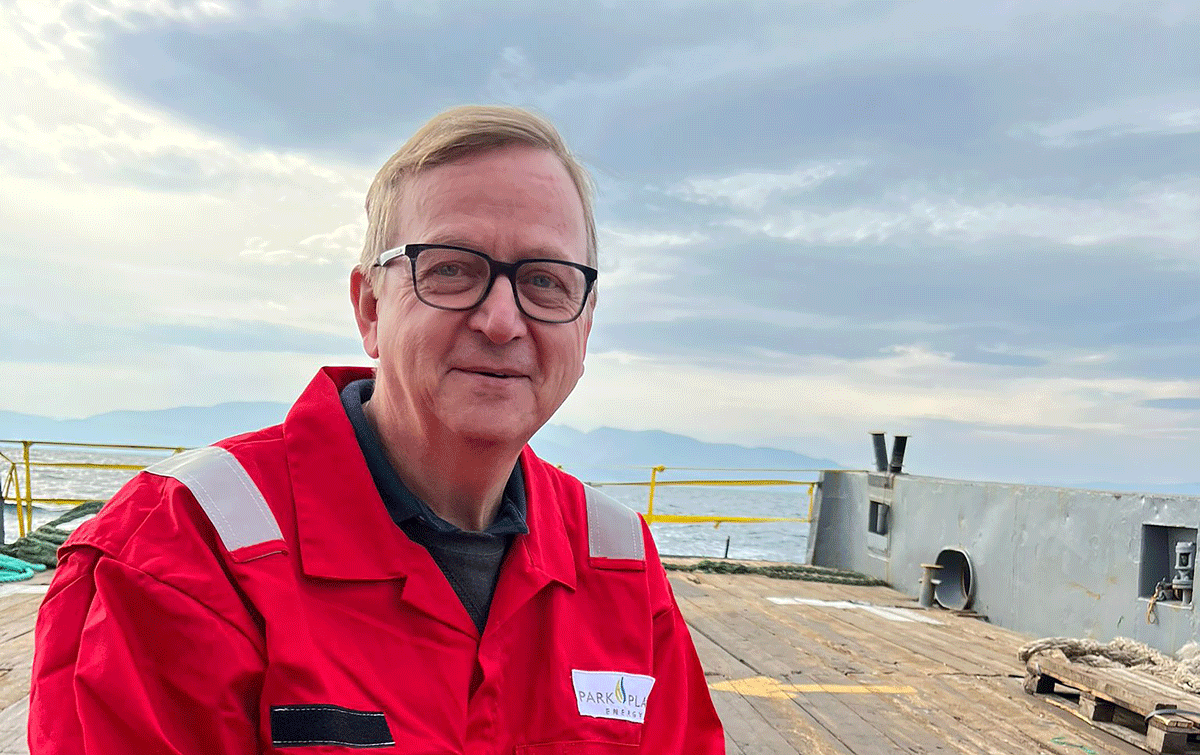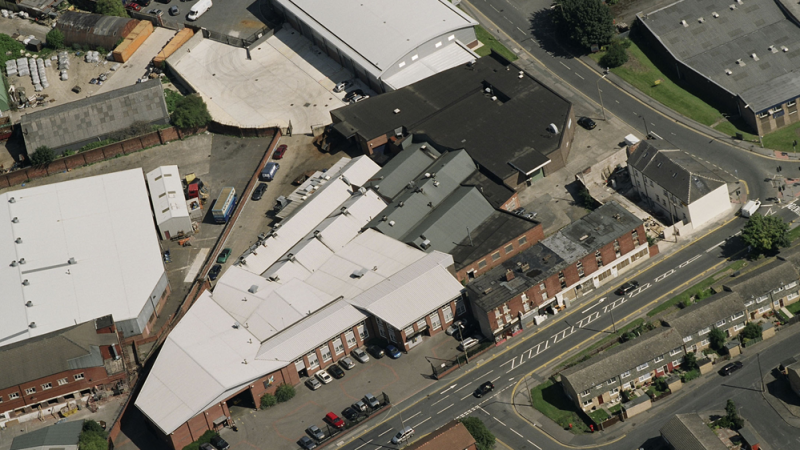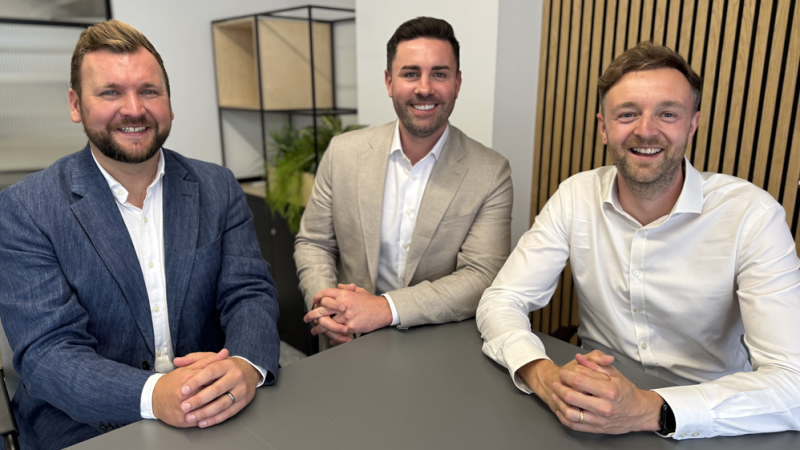Trillion Energy is an oil and gas producer in Türkiye, its main asset is the South Akcakoca Sub-Basin (SASB) offshore gas field in the Black Sea that that started gas production in 2007.
“We purchased SASB in 2017 for US$2.1 million, which included about $600 million of investment (four platforms, gathering pipelines, onshore gas processing facility and four discovered proven non-produced gas pools), and utilised new drilling technologies to access the proven pools from the existing offshore platforms” explains Arthur Halleran, CEO of Trillion Energy. “In the past industry was not comfortable drilling from the platforms out more than 1.5 kilometres, however, we are going out as much as 2.9 kilometres. This means we now have that reserve base, and it opens a lot more potential activities for the future.”
SASB has been a great place to build our business from, the value of this gas resource is not only stellar, but it also provides Trillion with a strong foothold in the Turkish market, which Halleran tells us is a good market to be in right now.
“Türkiye is a really good country for the oil and gas industry. It imports 96% of its oil and gas, so there is a market for the gas we produce,” Halleran says. “We also have an oil field called Cendere that is producing oil for us. Türkiye is also part of Europe, so it is a good place to do business.”
As well as the successful development drilling in unlocking these gas reserves, Trillion Energy has also undergone a series of exploratory phases around the site with the intent to discover new reserves.
“What sets us apart is our existing infrastructure that is under-utilised, including proven gas reserves that have still not been put in production, alongside a good market that buys everything we produce,” says Halleran.
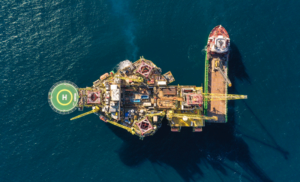 Unlocking Value
Unlocking Value
SASB is not Trillion Energy’s only resource – it also has a smaller oil field that produces 150 barrels a month, but talking with Halleran it is clear that he is excited by the real growth opportunities that SASB presents.
“From the very beginning SASB was the challenge,” Halleran says. “When we picked up the asset for the company SASB had two sequences of drilling, 2007 and 2011and no bookable reserves. There was no reserve report, and the accountants had written off the facility.”
To prove the site had value, Trillion Energy needed to reach the resources previous operations had been unable to.
“Our challenge was to drill those 3 kilometres along an inclined, long reach, directionally drilled well. We faced horrendous friction coefficients that caused too much torque,” Halleran says. “A simple solution would have been an oil-based mud, but there were environmental issues associated with that. We used a method that we had seen deployed in horizontal wells drilling in shale gas. That technique used a water-based mud. We took that and used it as an experimental component. In our first well, we were drilling six or seven metres per hour. With this mud, we were able to bring that up to 17 metres per hour.”
The water-based mud Trillion deployed had never been used in this kind of well before, but this project demonstrated what was possible. Alongside this, Trillion deployed new techniques to run in the well casing, making use of inflatable casing hangars to allow good cementing jobs.
All of this has been part of an ongoing process of unlocking value where others might not have seen it.
“We have this asset that basically was worth nothing because the fields were too far out, but by using new technology we have opened up the kinds of resources that can be accessed,” Halleran says. “To use a metaphor, we have proven the car works, so now we just need to roll it out.”
Increasing Türkiye’s ability to open up new resources is particularly important to the country as a whole as it seeks to reduce its reliance on imported oil and gas, which currently consists of 95% to 98% of its total gas usage, including some from places such as Russia.
“The government is really supporting the Turkish petroleum industry even though it currently only provides between 2% and 5% of its oil and gas,” Halleran points out. “We only pay a 12.5% royalty, so if we find or produce something in Turkey it has really good economic terms compared to say, Iraq, and it’s a high-price gas environment.”
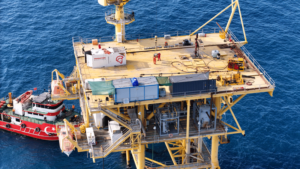 Turkish Talent
Turkish Talent
As well as being an excellent economic and regulatory environment to work in, with numerous potential resources available, Türkiye also has a rich talent pool to draw upon.
“Türkiye has engineers already attached to the SASB program from 2007 to 2011. Turkish nationals have really good training and have access to a lot of practical training and experience in neighbouring countries such as Kuwait and Iraq. You run into good quality people here,” Halleran says.
But while the general crop of industry talent was high in quality, Trillion Energy was seeking out the best of them, and importantly, the most ambitious.
“Most of the people we hired through our own contacts and a lot of them I would call high achievers,” Halleran recalls. “They saw our project at SASB as a big challenge and wanted to show that these wells could be drilled.”
It got to the point that when Trillion started to see success in these programs, Halleran had people asking him for still more challenging work.
With this combination of world-class technology and local talent, Halleran’s eye is on the huge potential Trillian Energy is positioned to open up in the future.
“When doing something new, at times you do not know what you do not know,” Halleran says. “We ran 4 ½” diameter production tubing into the wells as we knew that the instruments could not be conveyed to the gas zones by gravity alone. We utilized borehole tractors running in the 4 ½” tubing to convey the perforation guns to the gas zones. Initial production rates for the wells were +5 MMcf/d, but had a steep decline and stopped producing at about 2 to 2.5 MMcf/d gas, this was atypical compared to the analogue wells.
It was a challenge that saw Trillion Energy’s share price fall off as shareholders thought the gas had run out or could not be recovered, but an analysis indicated the 4 ½” tubing is these long wells loaded up with produced water and the tubing was too big to allow the produced gas to push out the water. The wells stopped producing when the weight of the column of water in the tubing was greater than the production pressure.
Trillion has found a simple solution to resolve the issue and things are rapidly picking up again. The solution is to perforate all remaining gas pay so that the borehole tractors are not needed again, run a smaller diameter 2 3/8” production tubing, it will work like a velocity string. The amount of water is less, and the gas-producing pressure will blow the water out of the tubing.
At the time of writing, Trillion Energy has just announced successful perforations that will allow the introduction of new 2 and 3/8th inch tubing into these wells, opening up a potential $24 to $36 million in gas revenue a year for their five drilled wells.
“The fantastic response of the first gas well, South Akcakoca-2 once the water was lifted off the perforations indicates that the reservoirs will produce the gas they contain once the water loading is removed,” Halleran says. “The wells are going to be perforated and monitored during clean up to evaluate the response of the reservoir. The next phase of this project is to install the smaller production tubing (2 3/8”) to allow the wells to produce for two to four years before water loading occurs again and artificial lift would be installed.”
